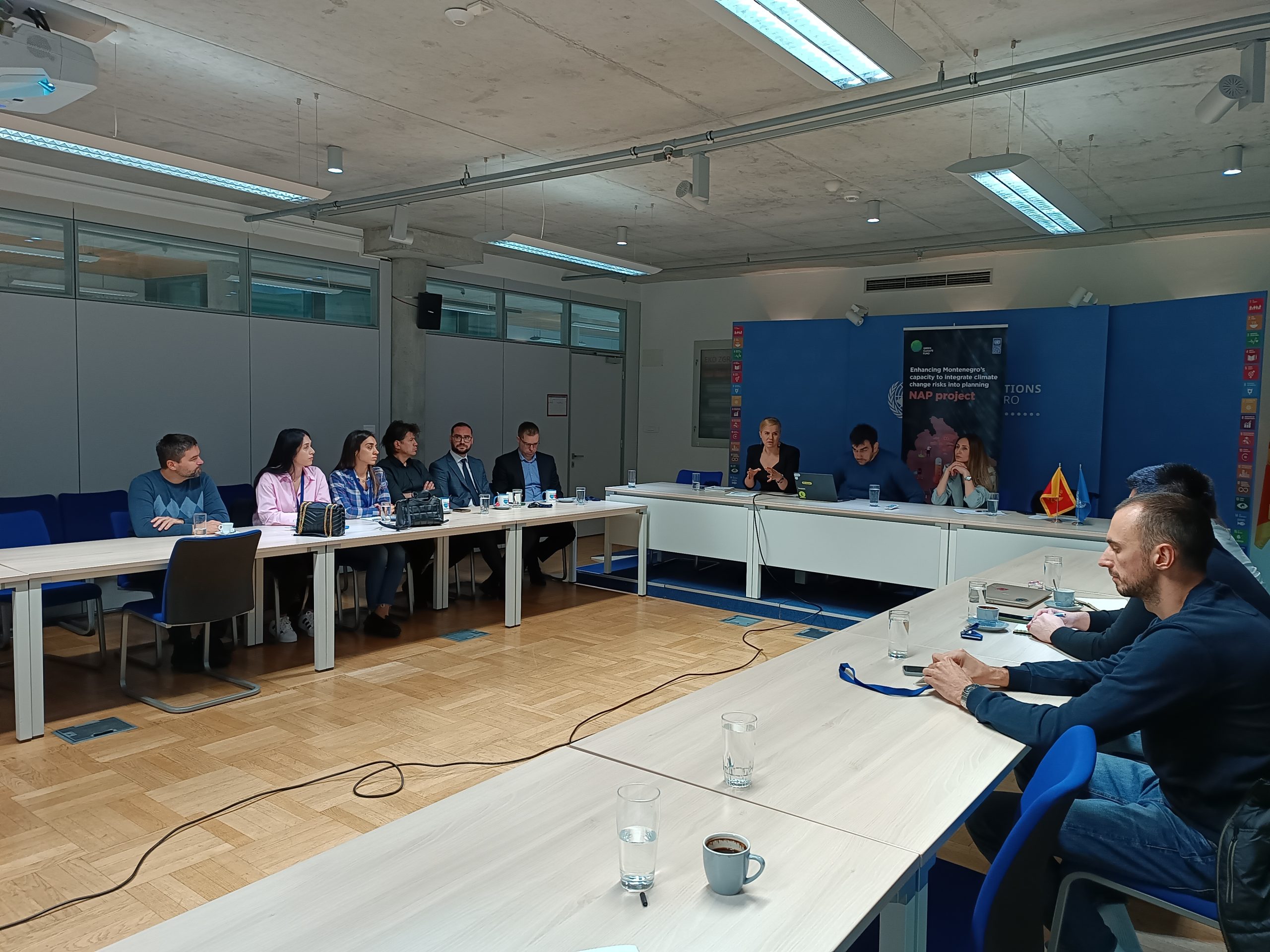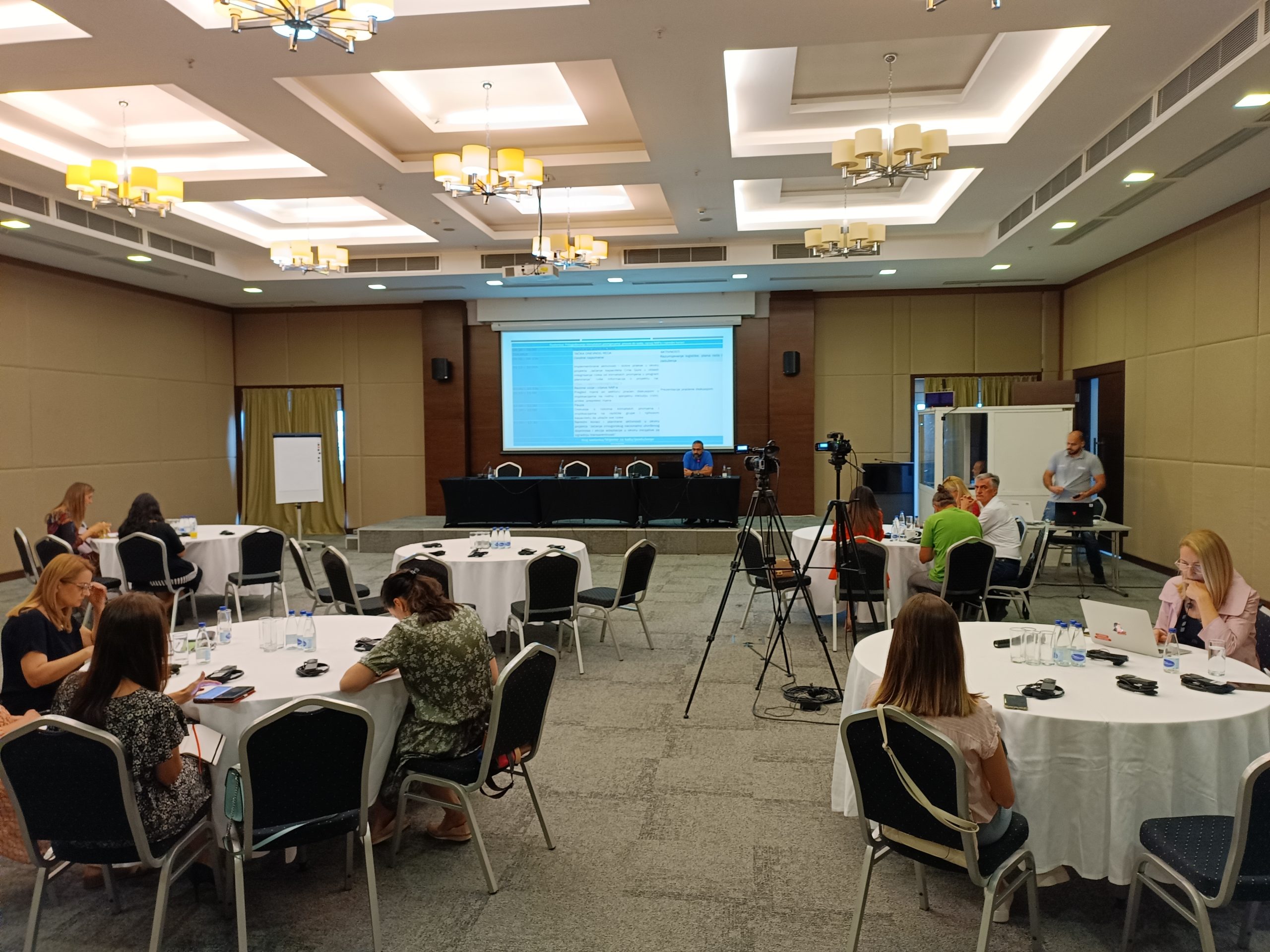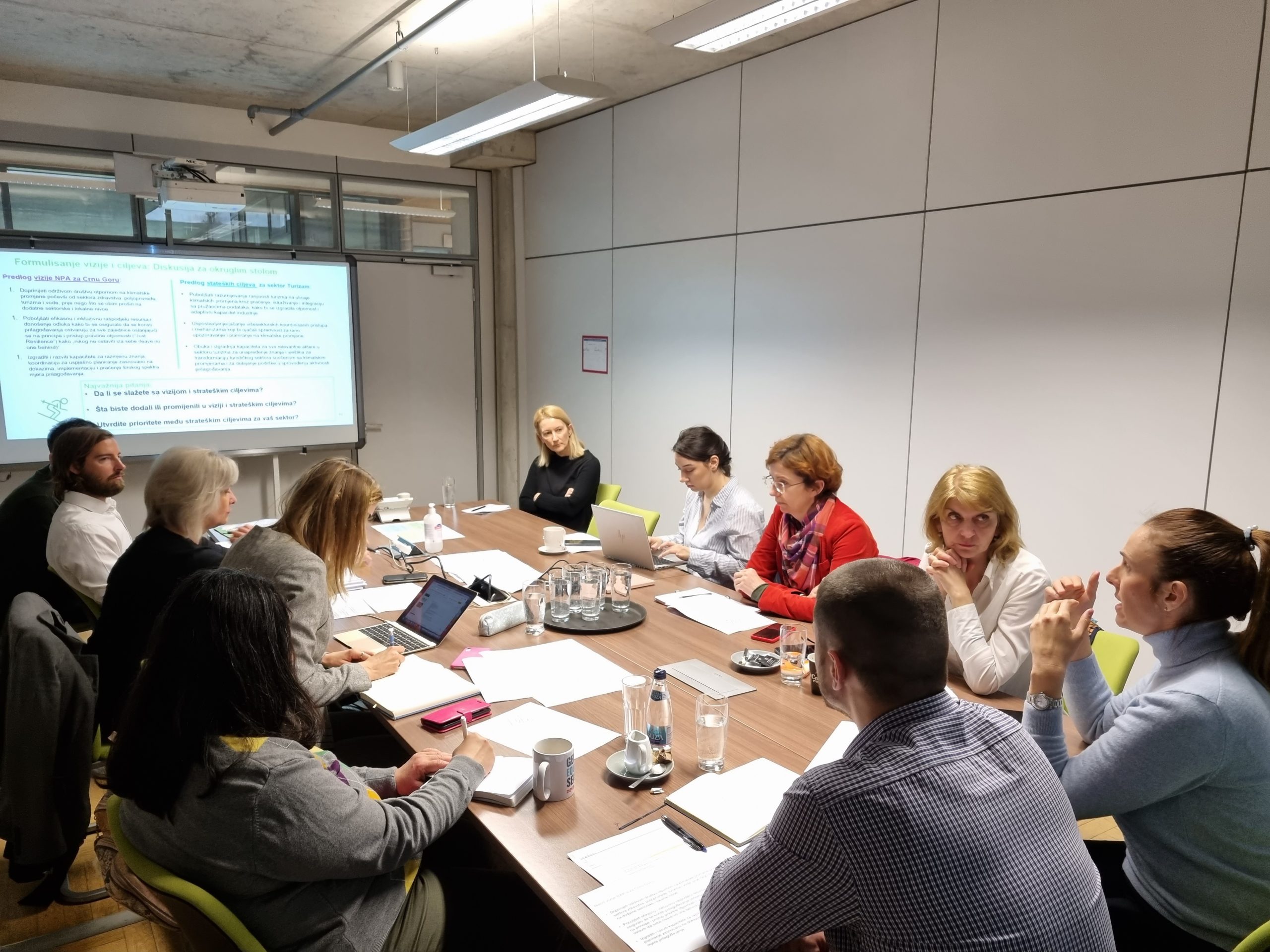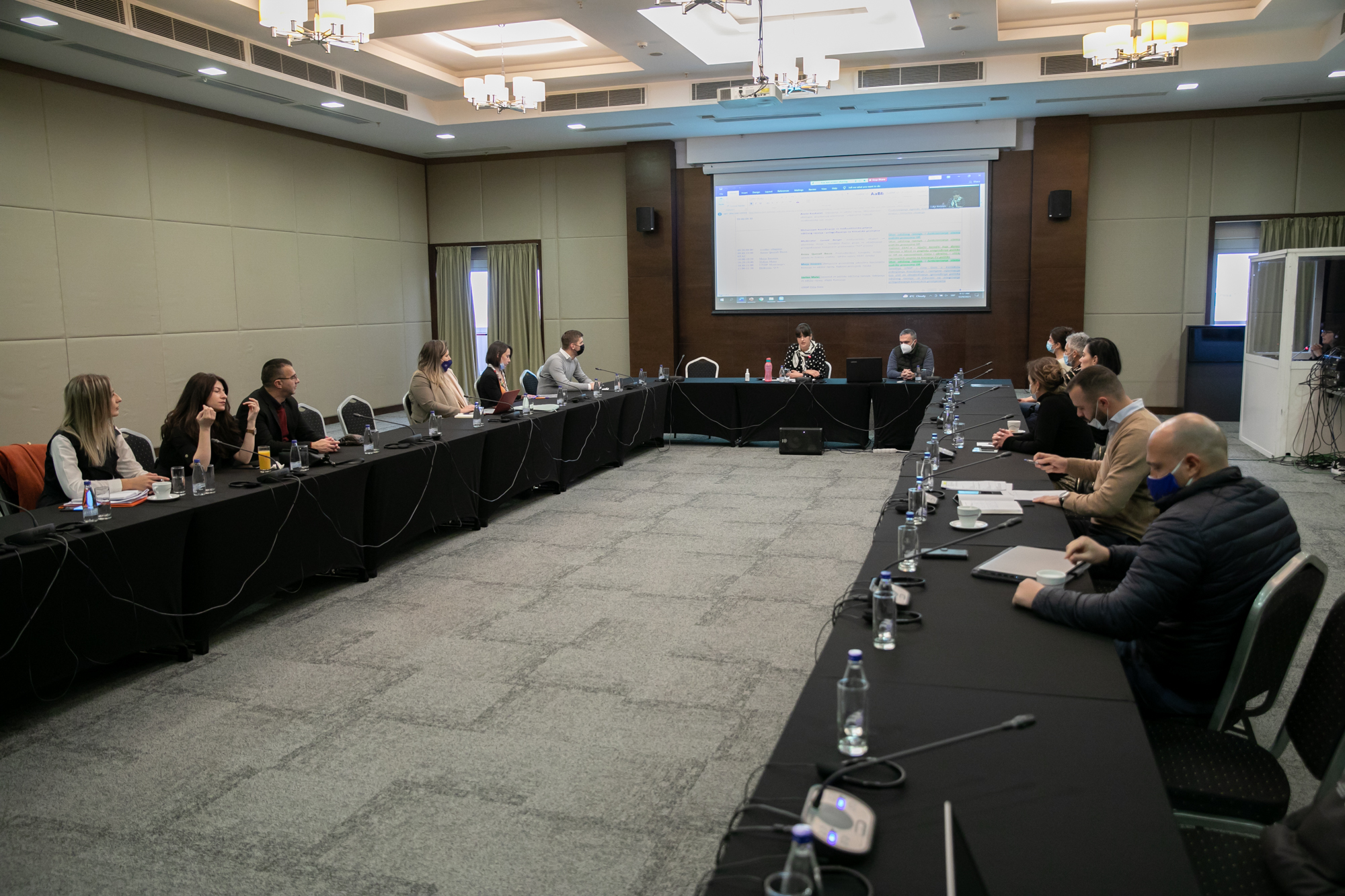A workshop focusing on the transfer and exchange of knowledge and experience of the European Union member states in the field of climate change adaptation was organized in Podgorica on 6 and 7 July 2022, with an emphasis on monitoring, reporting and evaluation of processes that are important for this procedure.
As the number of countries that move from planning to the implementation of national policies, strategies and plans important for climate change adaptation increases, so does the need to define approaches and methods to monitor progress and understand the effects of adaptation policies and measures. In addition to national needs and goals, countries are increasingly required to report on their efforts to adapt to climate change, e.g. within their international obligations under the Paris Agreement. Various analyses conducted across Europe have shown that the challenges to understand progress in climate change adaptation are often the same or very similar, despite the fact that adaptation priorities and climate risks differ from one country to another. As the evidence on practical experiences of various countries is still limited, there is an urgent need to facilitate and encourage the dissemination of lessons learned and exchange of experiences among countries.
To that end, the overall goal of the organized workshop was to focus on the most recent developments in the field of climate change adaptation at the national level, mainly in Europe. Lessons learned and ways to overcome challenges along the way were shared through examples of countries that have gained practical experience in monitoring and evaluating their national climate change adaptation strategies. In order to create the best possible strategic and normative framework, the workshop participant pointed out that special attention should be paid to the involvement of stakeholders, the role of adaptation indicators in monitoring, reporting and evaluation, and the use of knowledge attained through monitoring, reporting and evaluation for improvement and further promotion of the policy and practice.
Furthermore, a brief overview of the links between national monitoring, reporting and evaluation activities and the needs for knowledge at different management levels (local and international) was also presented. Participants were thus provided with an interactive space where experiences and lessons learned from speakers and participants can become part of practice as regards monitoring, reporting and evaluation of matters important for climate change in Montenegro.
The workshop also aimed to raise awareness about the need to have adaptation and monitoring indicators, by sharing experiences and by looking at recent developments and potential for future implementation of indicators and monitoring of climate change adaptation.

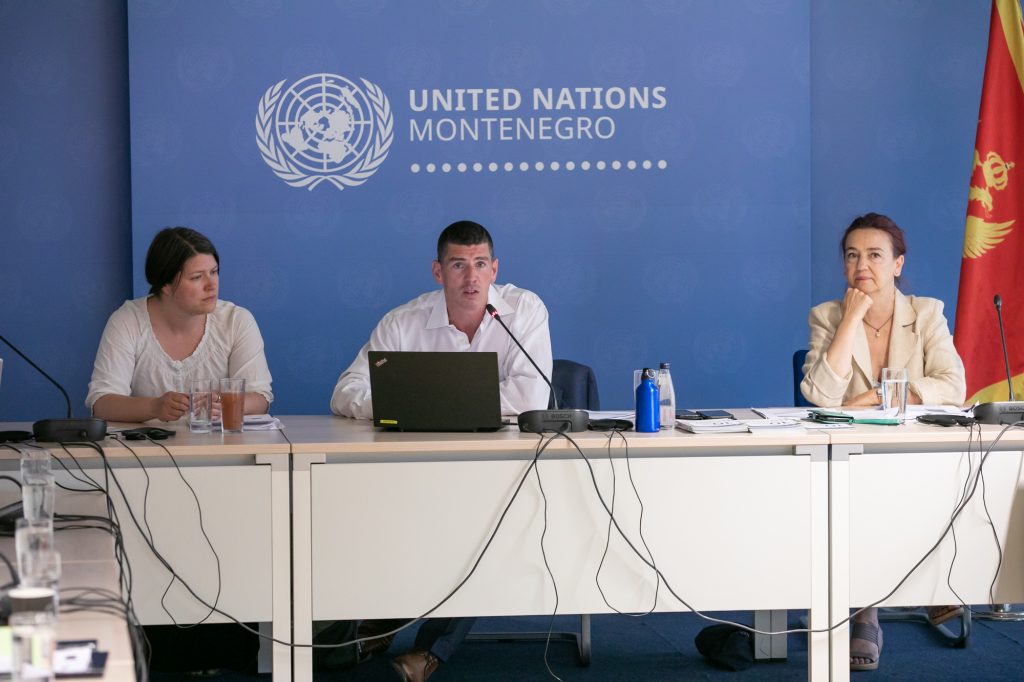
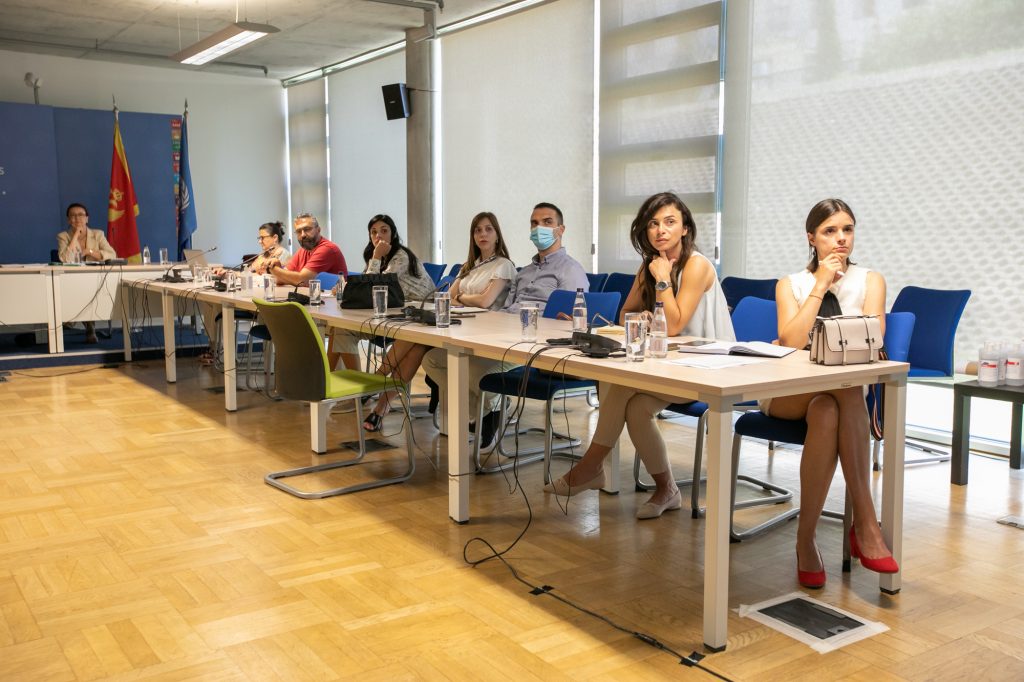
 Back to previous page
Back to previous page

